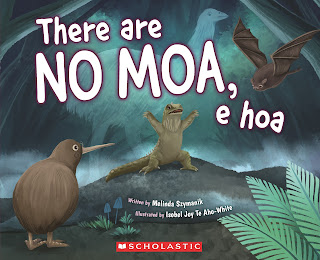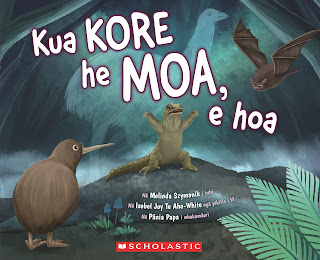I am busy with other things - working on some poetry for submission, preparing content for some talks and workshops I'm doing soon, and I'm on a selection panel reading over 84 submissions, so in the meantime here is something I prepared earlier for your reading enjoyment - a short story, Rich Pickings, from my collection Time Machine and Other Stories (Ahoy! [Cuba Press], 2019). And there are teaching notes on this story (page 11) here.
Rich Pickings
You
might think it strange, how no one noticed. Although a few centimetres a day
isn’t that obvious, at least to begin with. I mean, bamboo grows heaps faster –
over 30 centimetres a day in the right conditions. But this wasn’t bamboo.
It was
Jess that first spotted what was happening.
“Has
someone been watering the cactus in the hallway?” she asked as she wandered
into the kitchen one Monday morning.
“Oh my
goodness,” Mum said. “I forgot to water the plants. Again.” She turned to her
husband. “You’re meant to remind me.”
“And
who’s meant to remind me to remind you?” Dad replied with a smile.
“Well
somebody must have done something, cos it’s grown a fair bit,” Jess said
pulling the fridge door open. “Who ate the last yoghurt?” she grumbled.
Izzy
said nothing, shrinking a little further down in the lounge chair just beyond
where the kitchen opened out into the sitting room, carefully placing the
teaspoon into the empty pottle in her lap. She sniffed as quietly as she could,
before silently picking her nose.
“I’ll
have to water everything tonight, when I get home,” Mum said. “Don’t let me
forget.”
“Sure
thing,” Dad said, before tipping his head back to drain the last of his coffee.
“Well
the cactus doesn’t need it,” Jess said closing the fridge door with a thunk.
And then
they forgot about it.
Mum
remembered the watering on Wednesday, making her way round the aspidistra, the
African violets, the mother-in-law’s tongues, and the peace lily, with a soda
bottle filled with water. She finally reached the hallway after a quick refill
in the bathroom.
“Is
that normal?” she asked.
Dad
emerged from behind his computer in the study, his eyebrows rising at the sight
of the cactus. “When did you buy that?” he asked.
“I
didn’t,” Mum said.
“It’s
Izzy’s, isn’t it? Jess said wandering along from her bedroom to see what was
going on. “The one she bought a year ago at the school fair?”
“But
that was just a little nub. Thumb sized. Without arms,” Mum said. “I thought it
was dead.”
It
looked like a little person now. If that person was green and covered in little
white prickles, and was the height of a ruler.
“Maybe
cacti have growth spurts,” Dad said. “Maybe we have the perfect cacti raising
environment.”
“Well
it doesn’t look like it needs any watering,” Mum said tipping some of the soda
bottles contents into the pot plants on either side of the cactus, bookends of
sweet but straggly little pansies.
“Maybe
we should buy more, if they grow like that without water. That’s so low
maintenance. And I wouldn’t have to remember to remind you to water the
plants.” Dad grinned at his own cleverness and slid back behind his computer.
And then
they forgot about it.
Later
that evening Izzy ambled along the hall from her bedroom at the front of the
house, to the kitchen at the back. She was thirsty, unlike the cactus. And as
she passed the pot plants on the book shelf she dropped a little rolled up greenish
ball held between her first finger and thumb onto the soil the cactus sat in.
On
Sunday, Dad stood in the hallway scratching his head.
“Not
as low maintenance as I thought,” he said to his wife who stood beside him also
gazing at the cactus now two rulers tall and as fat as a doughnut, the glazed
pot it sat in cracked from top to bottom, a scattering of soil like a
reflection of the crack, on the top surface of the book case.
“Hmmm,”
Mum said, a frown digging down her forehead. “Should we be worried?”
“It’s
just a plant,” Dad said uncertainly. “A cactus. It can’t keep growing forever
without water. Can it?”
“I’ll
repot it,” Mum said.
“Use a
bucket,” Jess suggested. “And best put it on the floor. Just to be safe.”
Izzy
sniffed loudly.
“Get a
tissue, why don’t you sweetheart,” Mum said.
“Bad
for the environment,” Izzy said. “Anyway, don’t worry. I don’t really need one.
And she looked at her fair-bought cactus with a sly smile.
But
the others forgot about it.
On
Monday evening Mum hung her jacket on the coat rack as she swung in the front
door, and hummed her way down the hall.
“Hi my
honeys, I’m home,” she called.
In the
kitchen dad chopped onions, sniffing and wiping his eyes with the back of his
hand. Jess grated cheese at the table and Izzy sat hunched over her homework on
the other side.
“I
love that new coat rack,” Mum said to Dad. “Did you get that today?”
“We
don’t have a coat rack,” Dad said looking up from his chopping, tears streaming
down his face.
“That’s
the cactus,” said Jess. “It’s grown again.”
Mum’s
face dropped, turning pale with a hint of green. Then the colour flooded back
and she pressed her lips together firmly.
“Well,”
she said. “As I don’t know who’s going to hit the roof first, me or the cactus,
I think it’s time that plant moved out.”
“Lucky
Jess suggested putting it in the bucket. It’ll take all of us to move it now though,”
Dad said, glad for an excuse to move away from the chopped onions.
And it
did.
Strangely
the cactus stopped growing outside.
“Maybe
it’s too cold?” Dad wondered.
“Or
too wet,” Jess offered.
Izzy
just smiled to herself.
“Hey,”
Jess said one Monday morning as she ventured into the kitchen, “Have you seen
those pansies on the book case? It’s happening again. This time they’re
climbing the walls.”
The End
Melinda Szymanik


